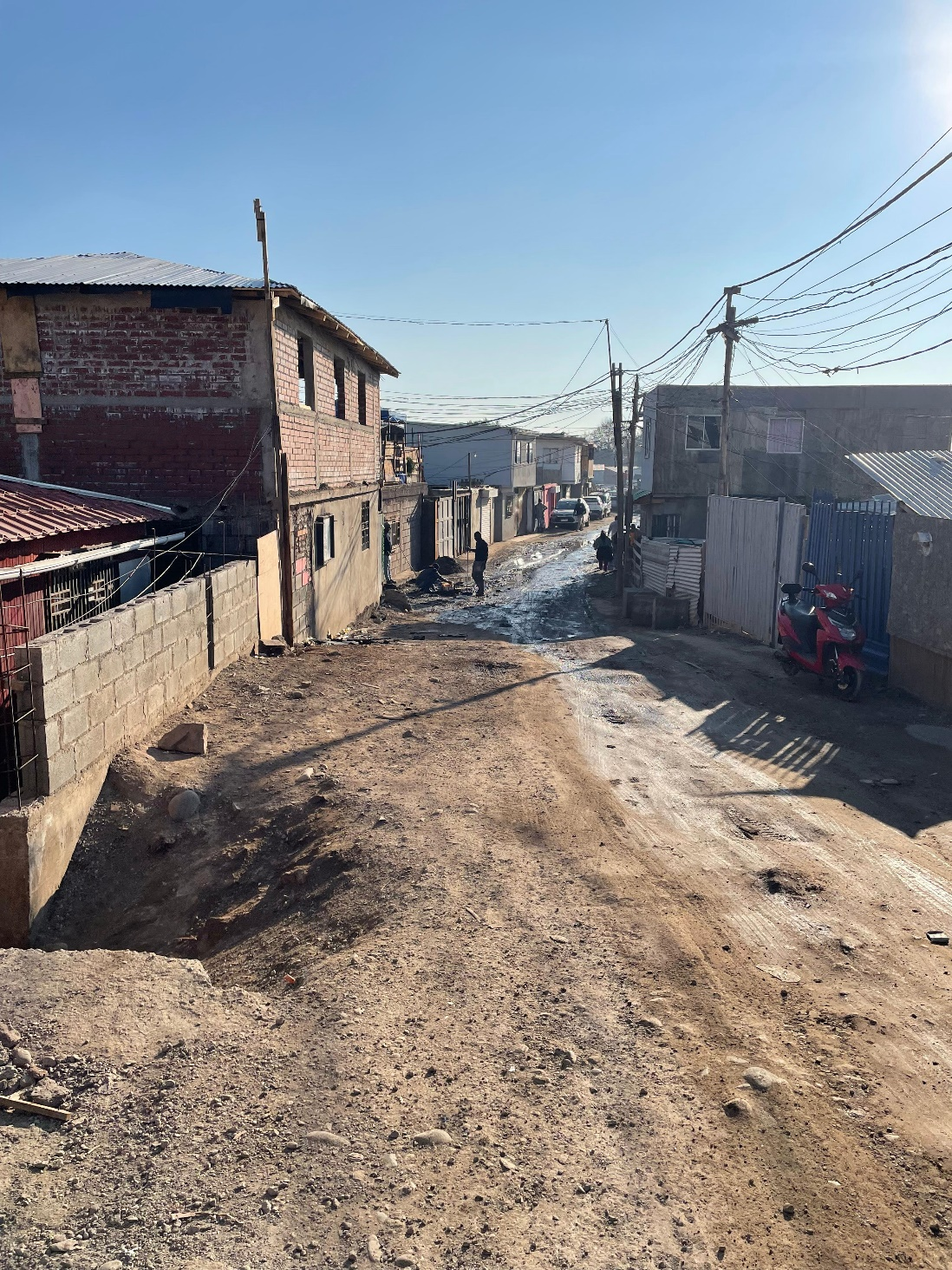City Know-hows

Our study examines how health, migration, and the climate crisis intersect in an informal urban settlement in Santiago, Chile. We highlight the important role of urban environments in promoting health, well-being, and resilience among vulnerable migrant populations.
Share
Target audience
International organizations supporting migrants in informal settlements across Latin America, such as the International Organization for Migration, the Office of the United Nations High Commissioner for Refugees, and the International Red Cross; Municipal leaders responsible for engaging with community leaders in informal settlements or land seizures; Local health authorities to enhance their understanding of living conditions and their impact on this population’s well-being.
The problem
Migrants in urban areas in developing countries are among the most vulnerable populations to the impacts of the climate crisis. Already facing structural inequities, they must cope with limited access to stable housing, essential services, and climate-resilient infrastructure. In Toma Nuevo Amanecer, an informal settlement in Santiago, Chile, these challenges are affecting the health and well-being of migrant populations, underscoring the need to pay attention to these interrelated vulnerabilities.
What we did and why
Using a qualitative approach, we examined health vulnerabilities and community strategies in response to climate crisis conditions, involving 22 residents from the Toma Nuevo Amanecer informal settlement. Primary data was collected through ethnography, a focus group, and semi-structured in-depth interviews. This approach aimed to understand how extreme weather events, such as landslides, heatwaves, floods, fires, and air pollution, impact migrant communities and their coping strategies.
Our study’s contribution
Environmental and social factors are critical to understanding the well-being of people living in urban informal settlements. We found that:
• Socio-environmental conditions, such as extreme heat, cold, rainfall, and increased fire risk impact the health and well-being of migrants.
• Residents’ ability to respond to these disasters currently depends on individual actions and community cohesion, with little or no support from public or governmental agencies. Individualized risk management may worsen health disparities for those lacking resources.
Impacts for city policy and practice
Our findings highlight the need for environmental and social policies that recognize how climate crises disproportionately affect residents of informal settlements. Specifically:
• Local authorities and health staff should be aware that socio-environmental conditions, such as extreme heat, cold, rainfall, and increased fire risk, are more likely in these areas than other parts of the city.
• Given the extreme vulnerability of these migrant communities, policies must address basic needs such as access to formal electricity, potable water, and sanitary services.
Further information
Full research article:
Health, Migration, and the Climate Crisis: An Exploratory Qualitative Study in an Informal Settlement in Santiago, Chile by Loreto Watkins, Estela Blanco, Javiera Barraza, Alejandra Díaz De León, Miguel Pérez, and Teresita Rocha-Jiménez.
Related posts

Livability is a people-oriented concept, and accurately measuring it requires a contextual understanding of what local stakeholders deem essential for making communities livable. Despite extensive research on livability indicators, most studies have taken a top-down approach, with few considering the input of the communities.

Understanding of the influence of local political actors helps to highlight where their influence is limited, particularly by national-level housing policy, which in the UK is focused on housing numbers, rather than quality of new homes, as well as financial viability and public opinion. Understanding this can help to build trust in the political processes of decision-making and inform interventions for healthier place-making.

The meaning, measurement, causes and consequences of social connectedness in cities. A useful primer and pragmatic framework for healthy cities, urban futures and public health.